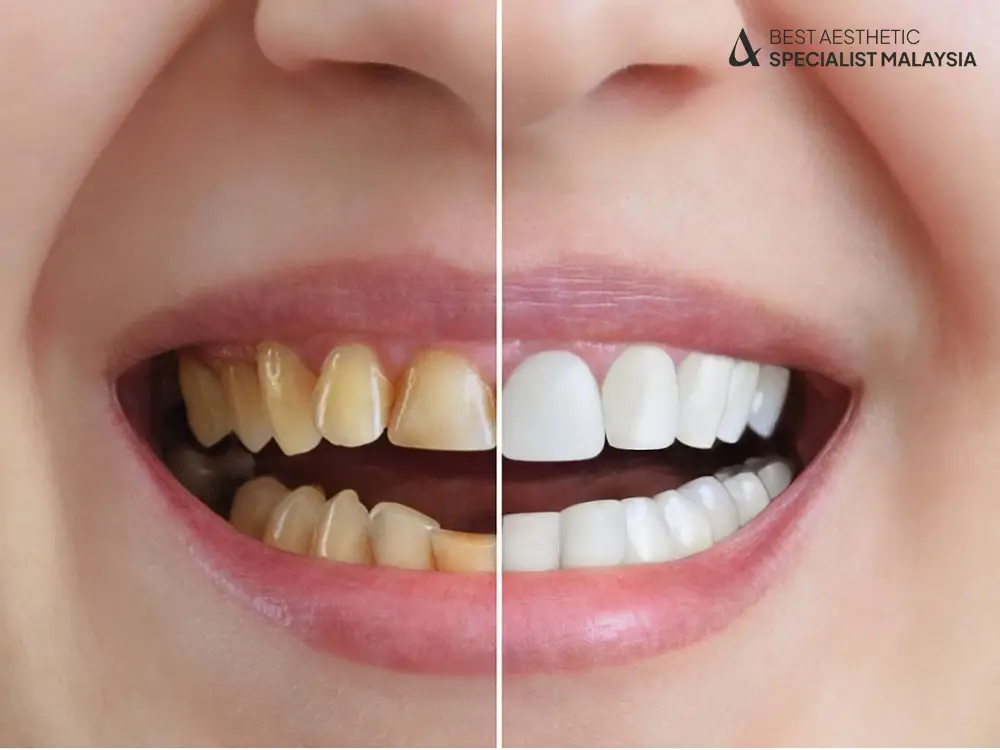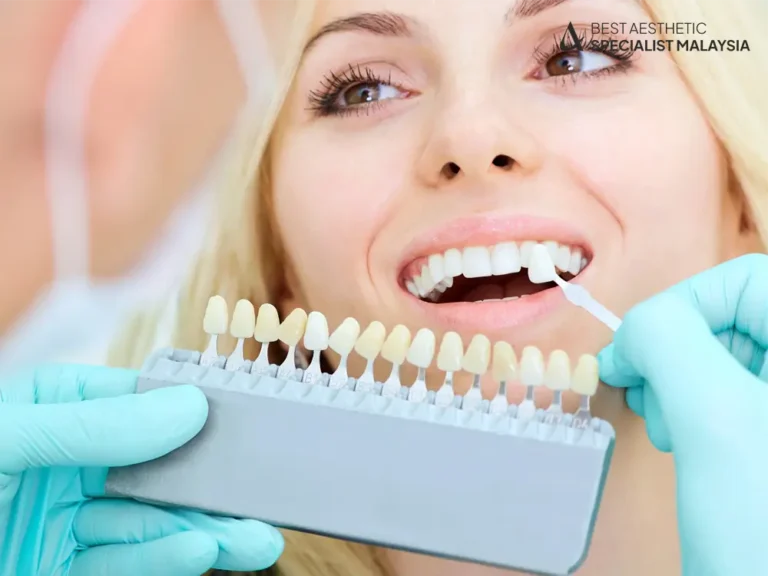whitening price in malaysia
A bright, white smile is often associated with good health, youth, and beauty, and it’s no surprise that teeth whitening has become one of the most sought-after cosmetic dental treatments worldwide. Whether you’re looking to remove stains from coffee, smoking, or simply age-related discoloration, teeth whitening can restore the sparkle to your smile. In Malaysia, dental whitening procedures are not only effective but also affordable, making it a popular choice for both local patients and international dental tourists. In this guide, we’ll walk you through the different types of dental whitening treatments, the procedure itself, the pricing in Malaysia, and answer five frequently asked questions.
What is Dental Whitening?

Dental whitening, commonly referred to as teeth whitening, is a cosmetic procedure that lightens the color of your teeth. It is used to treat discoloration caused by staining, aging, or other factors. There are two main types of whitening treatments: in-office whitening and at-home whitening.
In-office whitening involves a professional dentist performing the whitening procedure in the clinic, often using stronger whitening agents and advanced technology for quicker, more dramatic results. On the other hand, at-home whitening typically involves using custom-fitted trays or over-the-counter products, such as whitening strips, gels, or toothpaste.
Dental Whitening Procedure
Whether you opt for an in-office treatment or an at-home whitening kit, understanding the procedure is crucial to achieving the best results. Let’s go over the steps involved in both treatments.
1. In-Office Whitening Procedure
In-office whitening is performed by a qualified dentist and typically provides the most dramatic and immediate results. The process usually takes about 30 minutes to an hour, depending on the extent of the whitening needed.
Step-by-Step In-Office Whitening Procedure:
Consultation: Before beginning the whitening procedure, the dentist will assess your oral health and determine if you are a good candidate for whitening. This may involve checking for any dental issues, such as cavities or gum disease, that could affect the results or safety of the treatment.
Preparation: The dentist will start by cleaning your teeth to remove plaque and debris. This ensures that the whitening agent can be applied evenly and effectively.
Application of Whitening Gel: A special whitening gel, typically containing hydrogen peroxide or carbamide peroxide, is applied to your teeth. The gel is highly concentrated and designed to break down stains and discoloration.
Activation with Light or Laser: In some cases, the dentist will use a special light or laser to activate the whitening gel. This process helps the gel penetrate the enamel more deeply and speeds up the whitening process. The light is not necessary for all whitening systems but is commonly used in laser whitening.
Wait Time and Rinsing: After the gel is applied, you may need to wait for about 15-30 minutes while the gel works. The dentist will monitor the progress, and once the desired shade has been reached, the gel is removed, and your teeth are rinsed.
Post-Whitening Care: After the treatment, the dentist will provide you with aftercare instructions. It’s common to experience some tooth sensitivity for a short period after the treatment. Your dentist may recommend avoiding food and beverages that could stain your teeth, such as coffee, tea, and red wine, for 24-48 hours.
2. At-Home Whitening Procedure
At-home whitening treatments are less expensive and can be done in the comfort of your own home. These treatments generally take longer than in-office whitening, with noticeable results appearing after several days or weeks of consistent use.
Step-by-Step At-Home Whitening Procedure:
Consultation and Custom Trays (Optional): If you are using a professional at-home whitening kit, the first step is typically a consultation with your dentist, who will take impressions of your teeth to create custom-fitted trays. These trays ensure even application of the whitening gel and prevent it from coming into contact with your gums.
Whitening Gel Application: Once you have your custom trays, the dentist will provide you with a whitening gel. This gel is usually less concentrated than the in-office gel but still effective. The gel is placed inside the trays, which you then wear over your teeth for a prescribed period—usually from 30 minutes to 2 hours per day.
Daily Use: You will need to wear the trays for several days or even weeks, depending on the level of whitening desired. Some people may see results within a few days, while others may take longer. It’s essential to follow the instructions carefully to avoid overuse, which could lead to tooth sensitivity or gum irritation.
Maintenance: Once you’ve reached the desired level of whitening, you may need to touch up your teeth every few months or as recommended by your dentist. Over-the-counter whitening products can also be used for maintenance, though they typically aren’t as effective as professional treatments.
Price of Dental Whitening in Malaysia

The cost of teeth whitening in Malaysia is one of the key reasons why many patients choose to undergo the procedure here. Malaysia offers a variety of whitening options, from professional in-office treatments to over-the-counter products, all at competitive prices compared to Western countries.
Here’s an overview of the typical costs involved in teeth whitening in Malaysia:
In-Office Whitening: The cost of in-office whitening can range from RM 800 to RM 2,500 depending on the clinic, the dentist’s experience, and the type of treatment used. Some advanced treatments like laser whitening or multiple sessions may fall on the higher end of this price range.
At-Home Whitening Kits: Custom whitening kits prescribed by your dentist can cost between RM 500 and RM 1,500. The price depends on the number of treatments, the quality of the products, and whether the kit is designed for full-mouth whitening or touch-ups. Over-the-counter whitening products like strips or gels can be much cheaper, typically ranging from RM 50 to RM 300.
Despite being more affordable than in many countries, Malaysia maintains high standards for dental care, with clinics offering top-notch services and experienced practitioners. Many clinics also cater to international patients, making it a popular destination for dental tourism.
5 Frequently Asked Questions About Dental Whitening
1. How long does the result of teeth whitening last?
The results of teeth whitening can last anywhere from 6 months to 2 years, depending on your lifestyle choices. Consuming staining foods and beverages, smoking, or poor oral hygiene can cause your teeth to stain more quickly. Regular touch-ups with at-home whitening kits can help maintain the brightness of your smile.
2. Is teeth whitening safe?
Yes, teeth whitening is generally safe when done correctly. Professional treatments performed by experienced dentists are safe and effective. However, improper use of over-the-counter products or misuse of whitening treatments can cause tooth sensitivity, gum irritation, or damage to enamel. Always follow the instructions and consult your dentist if you have concerns.
3. Will whitening work on all types of stains?
Whitening treatments are most effective on extrinsic stains, such as those caused by food, beverages, and smoking. However, they are less effective on intrinsic stains, which are located within the tooth structure, such as those caused by medication or trauma. For intrinsic stains, other options like veneers may be more suitable.
4. Can I whiten my teeth if I have dental work (crowns, fillings, etc.)?
Whitening treatments do not affect dental restorations like crowns, veneers, or fillings. If you have these dental works, they will not change color with the whitening process. It may be necessary to replace restorations after whitening to match the new shade of your natural teeth.
5. Are there any side effects?
The most common side effect of teeth whitening is temporary tooth sensitivity, which can occur after both in-office and at-home treatments. This usually subsides within a few hours to a day. Gum irritation can also occur if the whitening gel comes into contact with the gums. If you experience prolonged sensitivity or discomfort, consult your dentist.
Conclusion
Dental whitening is an effective and relatively affordable way to enhance your smile, whether you’re opting for professional in-office treatments or at-home solutions. In Malaysia, patients can expect high-quality treatments at competitive prices, making it an attractive destination for cosmetic dental procedures. By understanding the procedure, costs, and potential side effects, you can make an informed decision and achieve a brighter, more confident smile. Remember to consult with your dentist to find the best option that suits your needs and ensures a healthy, beautiful result.
Dental whitening prices in Malaysia typically range from RM 500 to RM 2,000, depending on the type of treatment and the clinic. In-office treatments, which are done by dental professionals, tend to be more expensive but offer quicker and more noticeable results. At-home whitening kits provided by dentists can be more affordable, usually costing between RM 500 and RM 1,500. The price can also vary based on the clinic’s location, the expertise of the dentist, and the specific whitening method used.

